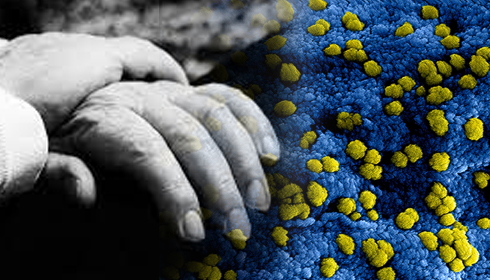
First Non-Surgical Success Parkinson’s Treatment in North India Offers Hope to Tremor Patients
In a remarkable medical triumph, a 68-year-old retired teacher with Parkinson's disease was able to overcome severe hand tremors without the need for surgery. According to media reports, doctors at a Delhi hospital utilised a non-invasive procedure called MRI-Guided Focused Ultrasound (MRgFUS), which employs sound waves to target and deactivate the areas of the brain that cause tremors.
The patient had been under medication for several years with no results. She hesitated when encouraged to try deep brain stimulation (DBS), a surgical treatment in which a device is implanted in the brain to regulate aberrant signals. Looking for safer solutions, she discovered this developing method, which is now available in India.
MRgFUS works by focusing several ultrasound beams on a specific area of the brain, typically the thalamus, with no incisions. Patients frequently report instant recovery after the ultrasound warms and kills the hyperactive brain cells that cause tremors. Dr Ashu Rohatgi, a member of the therapy team, while speaking to media noted that "in MRgFUS, the target brain cells are deactivated using ultrasound energy." "The entire procedure is carried out without a single cut."
Following the session, the patient's right-hand tremor went away, and by the next morning, she could handle a glass of water and write her name, which she hadn't been able to do in years.
Parkinson's disease is a degenerative neurological illness that impairs movement. Tremors are among the most apparent and disabling symptoms. The Parkinson's Disease and Movement Disorder Society of India reports that approximately 7-10 million individuals worldwide suffer from Parkinson's disease, including over one million in India alone. Traditional treatments include oral medications and invasive operations, which may have negative effects or pose hazards in older individuals.
Dr. Ajay Swaroop, another specialist participating, while talking to media, called the technique a "boon for patients suffering from severe movement disorders". While MRgFUS is still relatively new in India, it is FDA-approved and has been used in various countries, including the United States, Israel, and South Korea, primarily for patients with essential tremor and Parkinson's disease that is resistant to therapy.
This instance marks a significant milestone in Indian healthcare, especially for elderly patients who are either incapable or hesitant to undergo invasive brain surgery. The procedure's success highlights how technology can revolutionise chronic disease treatment by providing dignity and a higher quality of life to patients who were previously dependent on others for fundamental activities.